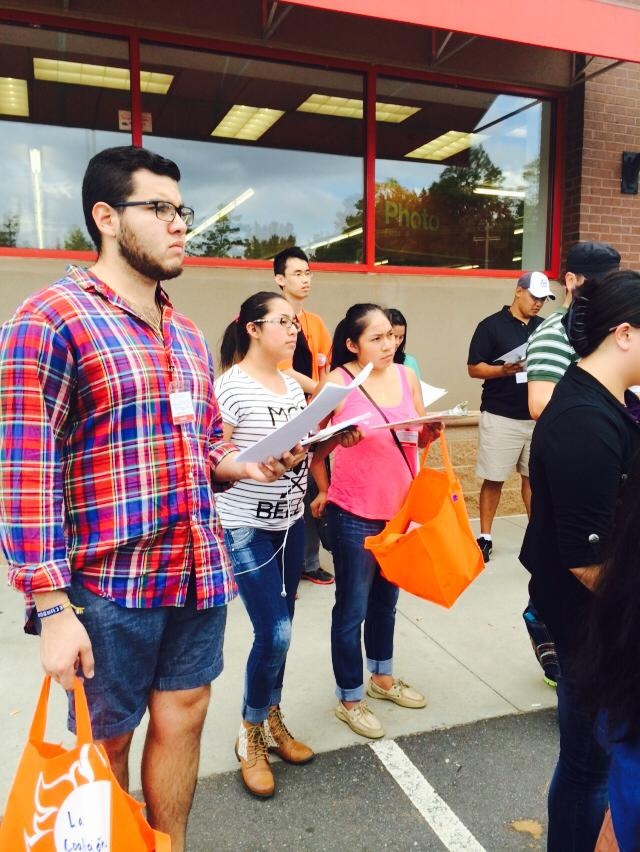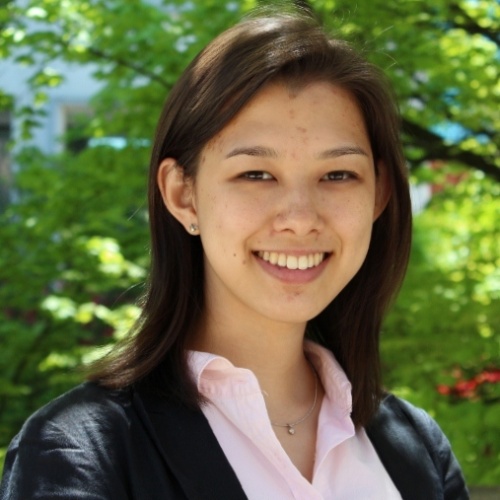Charlotte immigrant groups mobilize voters in emerging communities

This fall, two immigrant-support organizations in Charlotte are joining forces to reach out to a thousand Latino and Asian voters in North Carolina's largest city to cast votes in this November's midterm elections.
The Latin American Coalition (LAC) and the Southeast Asian Coalition (SEAC) are two organizations supporting the booming populations of Latino and Southeast Asian immigrants in Charlotte. They share an office in central Charlotte and first crossed paths through the national New Americans Campaign, through which they have worked together to support immigrants through the naturalization process and to push for comprehensive immigration reform.
This fall, LAC and SEAC are coming together again in a home-grown effort to mobilize a thousand registered Asian and Latino voters of the 9,000 Asian and 17,000 Latino* registered voters in Charlotte. Targeting two precincts in southwest Charlotte with the highest numbers of registered Latino and Asian voters, LAC and SEAC plan to reach out through door knocks, mailers, robo-calls, and live calls in the weeks leading up to the election.
With a goal of making 12 touches per voter, the project is the most intensive get-out-the-vote (GOTV) campaign that either group has undertaken. It will test and build the organizing capacity of each organization as they look to 2016 and beyond.
The campaign also experiments with mail-in absentee ballots as a way to increase turnout among immigrants. LAC and SEAC's joint teams of Latino, Asian, and other canvassers are knocking on the doors of Latino and Asian households, encouraging people to mail in their vote by absentee ballot this year. It's a method of voting that's been growing across the country in recent years and makes voting easier for voters, particularly those who can't take time off from work to go to the polls. Oregon and Washington state actually conduct all of their voting by mail. In North Carolina, any registered voter can request an absentee ballot by sending in a request form. These must be submitted by Oct. 28, a week before Election Day. Ballots must then be returned to the voter's county board of elections by 5 p.m. on Nov. 4.
Many immigrants work hourly wage jobs, explains LAC Development Coordinator Whitney Smith, which may not allow them to take off work to get to the polls. Language barriers are also a challenge that can discourage Latino and Asian voters from going to voting sites where there are no interpreters, Smith says.
In addition to these joint efforts, LAC and SEAC each have their own field plans to reach out beyond the low-hanging fruit of already registered urban voters. LAC is running another door knocking and mail campaign in three other precincts in Charlotte as well as a phone campaign in two neighboring rural counties, Randolph and Davidson, to engage rural Latino voters.
SEAC is also reaching out to Asian and Pacific Islander (API) and African American voters in six other precincts in East and West Charlotte, where most of their base is. In addition, it is making a concerted effort to reach out to non-registered API voters through a series of three to four community forums to share information and open up discussion about gaps in API civic engagement and ways to get involved.
Although this last strategy is not likely to turn out many voters this November, SEAC Executive Director Cat Bao Le sees it as a crucial piece of SEAC's GOTV strategy.
"We have Asian voters who are registered, and there is a lot to do with that population," Le acknowledges. "But we can't be shortsighted and overlook the newcomer community or those who might not be new to North Carolina but who have never thought about voting."
For both Latino and Asian communities, there are big gaps between the overall population of their communities and those who actually cast ballots. In Mecklenburg County which is home to Charlotte, there were about 124,800 Hispanic residents and 47,800 Asian residents in 2013. But with the midterm election approaching, there are only 20,600 registered Hispanic voters and 11,000* registered Asian voters.
Turnout among registered voters is one issue that LAC and SEAC's current campaign seeks to address, but other factors contribute to this gap as well. Certainly for both groups, citizenship status affects the proportion of the community that is eligible to vote, although it affects each group in different ways. But even among those who are eligible, registering voters has been an issue with Latino and Asian eligible voters, who had the lowest registration rates nationally in 2012. Throughout the voting process, cultural and language isolation among both Asians and Latinos often means information about voting and candidates are not as readily available in these communities.
As Le emphasizes, bridging these gaps requires multi-year efforts of repeated touches and repeated opportunities to engage. This type of sustained outreach, she says, is necessary to build relationships, gain trust, and ultimately help bring a culture shift in emerging communities towards civic engagement and voting.
"It's that kind of changing of minds that's going to change the culture of North Carolina and the decisions that come out of North Carolina," Le says.
*Numbers based on Mecklenburg County Board of Elections' website as of Oct. 16, 2014.
Tags
Allie Yee
Allie is a research fellow at the Institute for Southern Studies and is currently studying at the Yale School of Management. Her research focuses on demographic change, immigration, voting and civic engagement.
